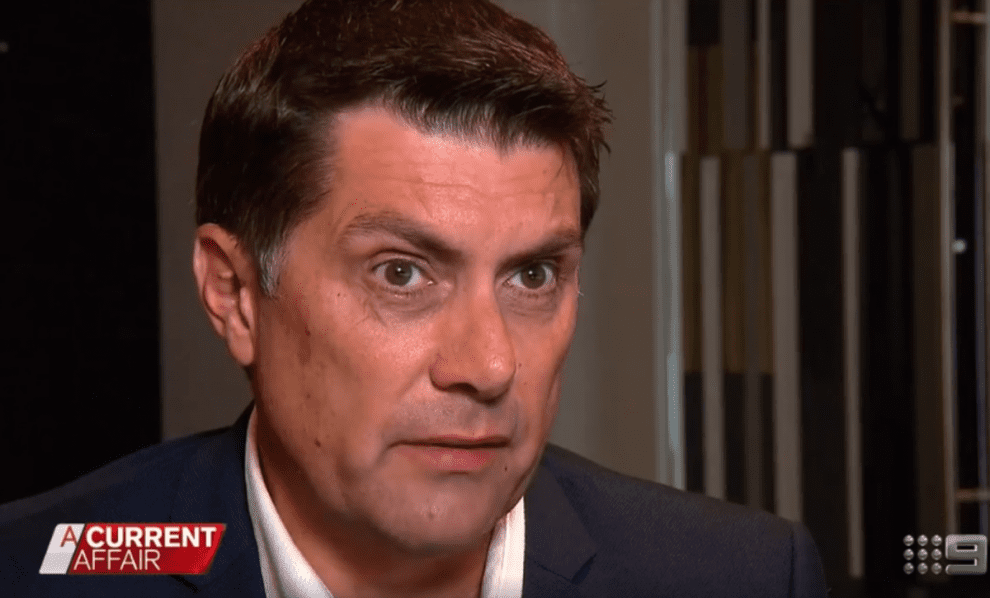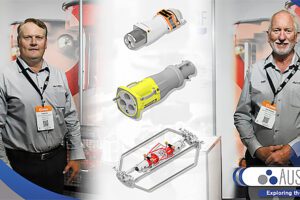Road safety will meet mining safety at this years Queensland Mining Industry Health & Safety Conference when it launches this Sunday. Acclaimed V8 Super Cars driver Craig Lowdnes will engage audiences with a keynote address and Mr Russell White, a leading Australian road safety campaigner and Managing Director of Driver Safety Australia, will continue in the tradition as Master of Ceremonies. Russell shared his thoughts with us in the lead up to this year’s conference about road safety and some of the impacts from an industry mining safety perspective.
Russell’s experience in the road safety field is very unique. His career spans more than 25 years and encompasses expertise across a broad range of road safety matters. He is widely regarded as one of Australia’s leading road safety advocates and media commentators, with regular appearances on Channel 7’s Sunrise program.
AMSJ – You’ve been an advocate for road safety for many years and have built advocacy, research and education as core pillars for your road safety mantra, but what is your personal motivation to keep flying this flag when sometimes the fight seems endless?
Russell: The big motivator for me is to facilitate change and make a difference. If you talk to people in the field and you can facilitate small changes in behavior and practices, you can also be truly inspired by them. Glimmers of success keep driving me forward.
One of the key motivators that keeps me going is when someone comes up to me after a presentation and tells a story about how I inspired them to make change several years ago. Knowing that I have helped preserved a life or helped to make a change of behavior is a great thing.
AMSJ – What do you see as key emerging issues in road safety? (particularly those that may affect the mining and energy industries).
Russell – One of the big things is how do we bring the disciplined workplace safety approaches to a broader community. While the mining industry is quite mature in its’ approach to safety, there are many other industries that don’t adopt a zero tolerance. There are people in the community that don’t have great discipline when it comes to roads safety.
The zero tolerances that the mining industry have adopted is something that other industries across Australia could look at. Control of behavior and actions is important in road safety and I believe that if people could take a leaf out of the mining industry, road safety in Australia could improve.
There aren’t many other industries that have safety conferences of this nature. There’s a holistic approach to the sector that is quite refreshing.
AMSJ – There is some concern that as an industry we may be over monitoring of drivers of vehicles. What’s your take on that?
Monitoring is even done for Formula One drivers. We shouldn’t discount it as a negative. Data provides opportunities to enhance performance…all the best drivers know that. Positive outcomes can be derived from good data. We can, and should be looking at data as an opportunity for improvement in our driving practice. The culture within an industry should be about using this data to get a road safety message to drivers to adopt better behaviors if their data shows that.
AMSJ – We understand that there are a range of existing technology solutions that can improve road safety for drivers yet successive Government’s haven’t mandated the technology?
The advanced driver-assistance systems that are entering the market like automated breaking, lane position guidance and adaptive cruise control will provide some great opportunities for enhancing road safety. They are now becoming standard on many vehicles because people and Government’s recognize the value.
Just as the controls come on board, I think it is equally important for drivers to gain an understanding of the limitations of the systems that they are using. The technology is amazing, but it only supports drivers at this stage. We know that autonomy will help reduce road accidents but the human factors will continue to exist on an ongoing basis, so educating people around the limitations of the system will be a key aspect of future. Education will be a key role of Government.
AMSJ – What have we got to do to get politicians to stand up and face the realities of engineering out risks from a vehicle point of view?
Russell – We can never completely engineer out issues. Governments must take a leadership position when it comes to road safety but, road safety isn’t only a govt or police issue. How we (as induviduals) use our road network as a pedestrian, a cyclist or driver must become part of solution. Empowering communities is very important. Unfortunately, many people don’t really know what safe driving looks like, most people can’t give you an accurate description of safe driving. They like to say “following the road rules”
The most important issue for me is that we need to give people an understanding of actually what safe driving behavior is and, why its’ necessary.
AMSJ – What are the key areas of emerging research that Australia needs to undertake now so that we’re placed ahead of the rest of the world in respect of road safety?
From my stand point…human factors, error distractions and situational awareness. We need to understand more about future human interfaces between technology based systems.
AMSJ – We’ve seen too many horrific accidents where mineworkers have been killed or injured on route to/from work often with fatigue as a contributing factor. How do we truly embed a culture of driver safety across an industry?
Russell – Great question…one of the disconnects is that there is a heavy focus on safety inside the parameters of the mine. Transplanting the same view when we leave the site is very important.
Road safety is a matter of choice and not a matter of chance. Having people understand there situational awareness is very important. If you know that you’re going to work tomorrow, taking responsibilities for your actions before starting work for a long week is important. You can’t hit the road early if you’re not well rested and prepared. You have to take responsibilities for your individual action – it’s about your personal culture for road safety.
You know it’s (driving) is a risky activity anywhere in the world.…it’s one of the riskiest things that you do. If you knew and appreciated that, would your mindset be different?
AMSJ – If you had to change one piece of legislation in respect of driver safety in Queensland, what would it be?
Russell – It’s about mobile phone use …it’s something that is not well understood. I’d change legislation to limit using a device while you’re in motion. Mobile phone use is an addiction for some people. It could be argued that it’s worse than drink driving.
You’re both impaired as well as driving blind when you’re on the phone and so many people are doing it.
I believe that public perception about drink driving has clearly changed over the years. It’s not socially acceptable to drive drunk and it shouldn’t be socially acceptable to drive while you’re on the phone.
Research over the last five years has shown that there is no difference in the level of distraction associated with using a hands free or hand held. It is equally as dangerous.
Legal doesn’t necessarily mean safe….the problem arises from how we process the phone signal as a driver. Research has shown that even two-way radios are less dangerous because of the less fluid nature of the conversation. Distractions from mobile phone use can be devastating and we need to limit people’s use…but this is about educating and changing the culture so people understand the risks.
We know that technology exists to jam a phone but the vehicle market is focusing on feature with connectivity. We should be limiting accessibility to phone conversations while driving.
AMSJ – The Queensland Mining Industry Health & Safety Conference is a great forum to promote research and education in road safety particularly with the mining industry. What are your specific goals and hopes for the conference?
Russell – With every conference you never know what one piece of information could change your direction in life or your career. I like the little light bulb moments that come from great conferences such as the Queensland Mining Industry Health & Safety Conference.
I attended a Road Safety conference in 2006 and took a gem from it and it changed my thinking and direction. I’m hoping that this event could bring about change whether it be in careers or personal outcomes. One idea can change behavior and the outcomes for an individual’s future.
Of course the innovation finalists are one of the real highlights for me. Seeing mining industry people coming up with solutions to real world mining industry safety problems, often with personal innovations is great. There is some real talent at grass roots level in the mining industry that is inspiring.
I sit back and get excited when I see passionate people who are engaged in what they do and making a real difference.














Add Comment